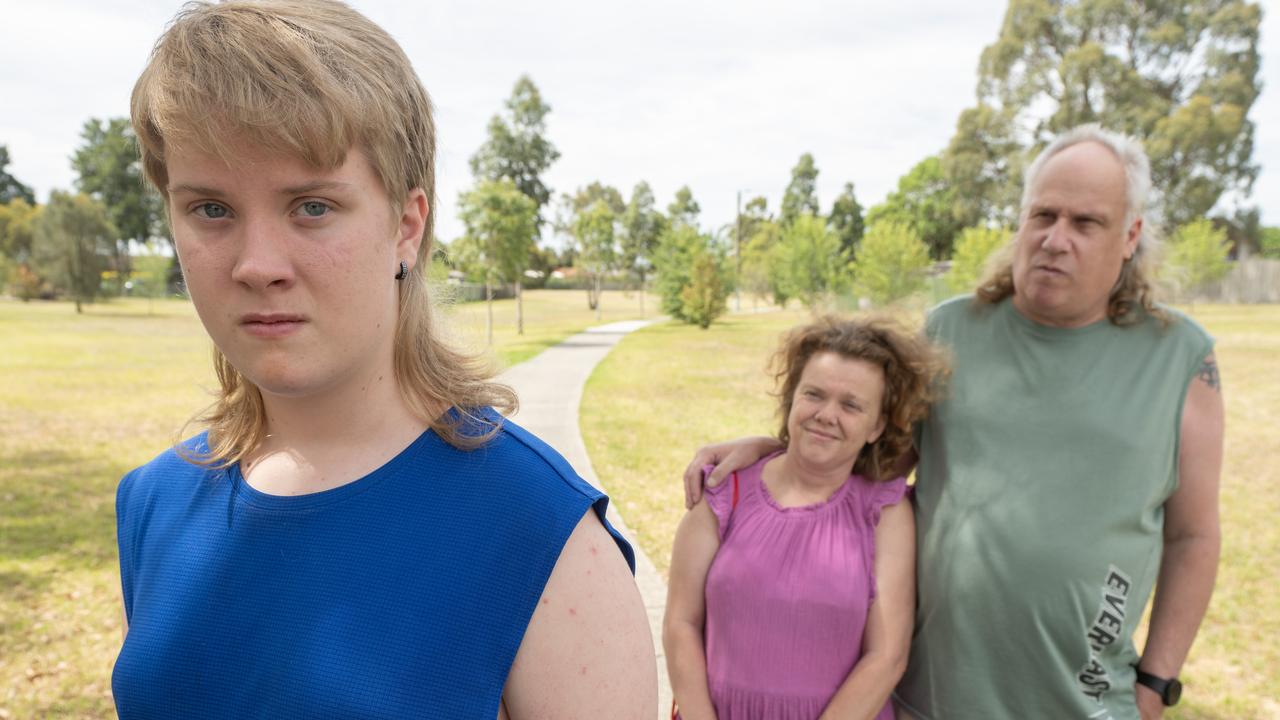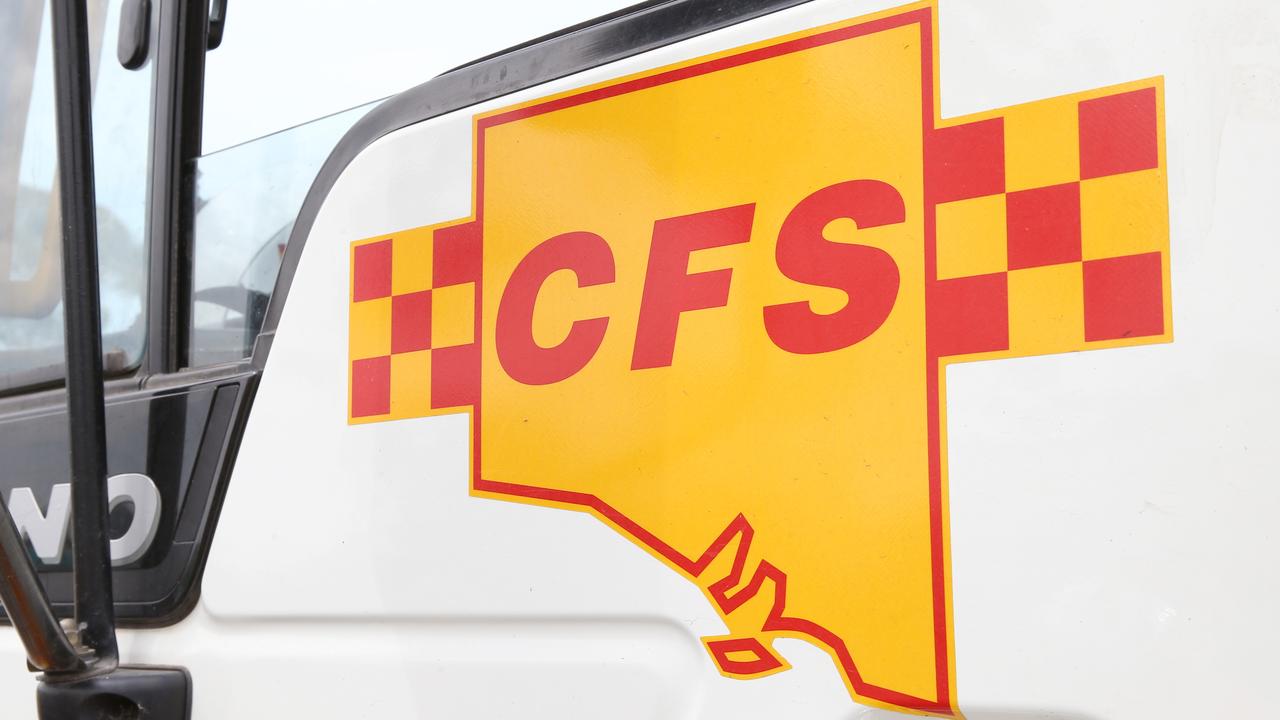Inklings program supporting young South Australians showing developmental delays
A nation-leading early support program will give caregivers more confidence in understanding and responding to their young babies who show differences in their interaction and communication.
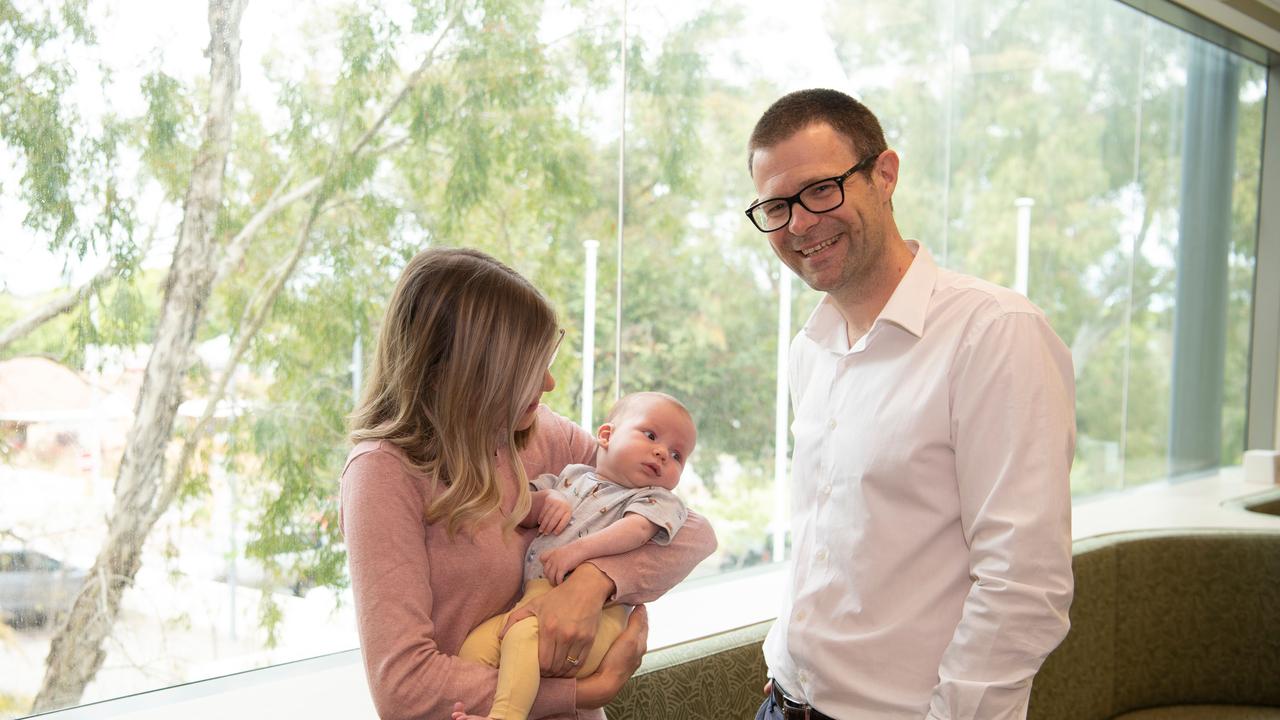
Don’t wait and see – identify and support. That’s the clear message from world-leading autism researcher Professor Andrew Whitehouse to parents who think their young children might be developing differently.
The professor of child development at The Kids Research Institute Australia (The Kids) is
the driving force behind Inklings, an innovative program built on science that demonstrates how supporting parents to engage and communicate with their babies can positively impact their child’s life.
The program has been developed over a decade by an international team of health professionals and researchers, with clinical trials in the UK and Australia carried out by the University of Manchester and The Kids respectively.
After initial success across Western Australia – where 150 families have entered into the program in its first year – Inklings is about to be introduced in South Australia.
“The program has been rolled out across WA and across the north of England,” Professor Whitehouse says.
“It’s really exciting that South Australia has now piloted the Inklings program, because it will make SA one of the leading jurisdictions in the world for supporting early childhood.”
Perth-based Professor Whitehouse, who won the Professions Award in the 2023 Western Australian of the Year honours, says it is typical for clinicians in the area of child development to adopt a “wait and see approach”. “We can often identify that children are developing differently in the first year of life, but currently we wait until children get older before we start providing any type of systematic support,” he says. “Our science says that we shouldn’t wait, but act to provide support immediately.
“We know that at the ages of six to 18 months, about 10 to 15 per cent of kids have social and communication differences or delays.”
Professor Whitehouse says “much of the fireworks in early brain development occur during those first two years of life”.
“Children are born with their brain at about 25 per cent of the size of an adult’s brain – by their third birthday, their brain will be at 90 per cent,” he says.
“The early life experiences of the child during this period will influence which neuronal connections are formed, and these in turn will shape the child for the rest of their life.”
Professor Whitehouse took the view that “based on what we know about brain science, our support of children needs to switch from ‘wait and see’ to ‘identify and act’.”
“That’s what Inklings is and it’s fantastic that it’s being implemented to benefit South Australian families.”
Inklings was the focus of two “very rigorous” clinical trials, which underscored the benefits of the program. “These showed that providing Inklings support very early in life – between the ages of six to 18 months – not only leads to better connection between parents and kids but that in turn leads to increased social and greater communication abilities when we reassess these children up to age three,” Professor Whitehouse says.
A core part of the program is filming parents with their children – and then providing feedback on their interactions. “Video feedback is unparalleled in its ability to help give parents insight into their child – to stop and see their child and all the amazing things they can do,” Professor Whitehouse says.
See the full interview with Professor Whitehouse here.
Making the connection
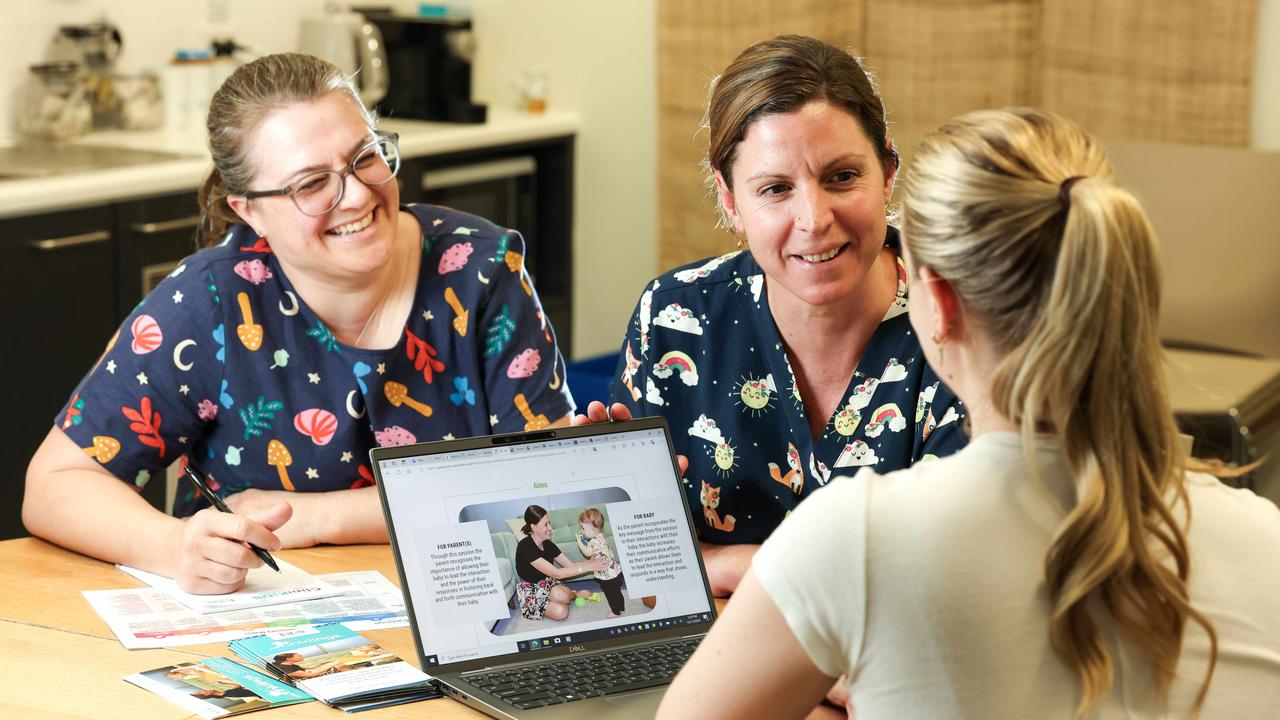
Up to 1300 South Australian families will benefit from a new, early support program for babies aged six to 18 months showing developmental differences in social communication and interaction.
Developed by The Kids Research Institute (The Kids) and delivered in partnership with the South Australian Government, the Inklings program will help parents and carers understand and connect with the individual ways in which their infant is communicating and interacting.
The Inklings program will be piloted in SA over three years to June 2027 through a joint investment from the Commonwealth and South Australian governments. Inklings will be rolled out across Adelaide metro and regional areas.
Increased access to proactive, early supports for developmental vulnerabilities was a key recommendation of South Australia’s 2022 Royal Commission into Early Childhood Education and Care. The program will be available to eligible participants at no cost, and will focus on Aboriginal and Torres Strait Islander families, culturally and linguistically diverse families, and families of lower-socio economic backgrounds.
The program has commenced with training of the first four Inklings practitioners, with a further 20 practitioners to be trained in 2025, with the program being fully implemented in March 2025.
“The program will bring more awareness to developmental differences in this younger age group, the importance of health and developmental checks, and the benefits of seeking early interventions and supports,” says Ashley Johnson, an Inklings practitioner and registered nurse with CaFHS. “It’s an incredible opportunity for families who participate.”
Inklings is a strengths-based program which is underpinned by decades of research in the UK and in Western Australia. The program uses short videos of the caregiver interacting with their baby. This helps caregivers to better understand their child’s thoughts and feelings, focusing on the different ways babies communicate, along with the importance of interaction and of following their baby’s focus of interest.
“Sometimes the early developmental differences we are seeing in this age group are really subtle,” Johnson says. “With older children, developmental differences in communication and socialisation may be more obvious, such as a child not saying many words or talking; whereas with younger children, it’s about more subtle social and communication differences – such as reduced babble and back and forth interactions, reduced engagement in shared play and fleeting eye contact.”
The Inklings program is delivered through 10 fortnightly sessions, with six core sessions followed by four sessions tailored to the individual babies’ needs.
“The use of video is incredibly powerful in supporting parents to identify opportunities for understanding, communication and connection with their child,” Johnson says. “When you look at the video with the family, parents have the opportunity to observe their child and themselves in the moment, and often see things that they may not notice in day-to-day interactions. Examples of subtle communication attempts and connections, and powerful parental responses are highlighted. You can see in the parents’ faces as they suddenly recognise their baby’s communication cues – they think: ‘That was really great, I’m going to do that again’.”
Research has shown early support through the Inklings program supports developmental gains in babies and caregiver confidence in understanding and responding to baby. “It’s amazing because you’re supporting these children to feel seen and heard,” says Erin McSorley, also an Inklings practitioner and registered nurse with CaFHS. “We know babies as young as six months are trying to tell their parents things. If they feel they’ve been heard, that’s going to keep them trying, and keep opening those avenues of communication. The Inklings program provides early opportunities for babies to develop positive communication strategies and strengthen connection with their caregivers.”
Parents and caregivers will be able to access the Inklings program by a referral from a health professional or by self-referral through the Inklings website (inklings.org.au/sa).
New practices help Lara get her smile back
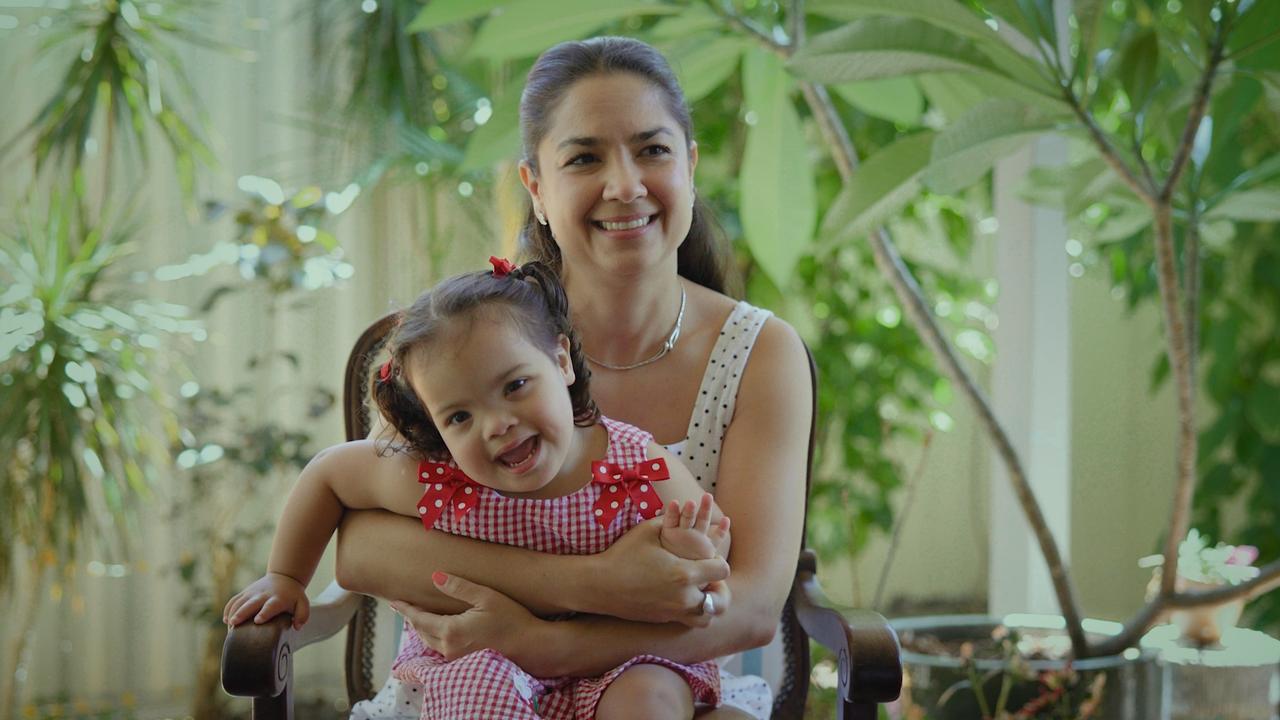
Patricia Macchiaverni felt like she was losing her daughter Lara.
When Lara stopped smiling and making eye contact at the age of about six months, the
Perth mother of two realised her daughter was developing differently.
“One day she stopped smiling and then stopped (giving) me eye contact,” Macchiaverni, 41, says. “It was really hard to engage with Lara. She was a completely different kid. I could see I was literally losing Lara – I couldn’t interact with her any more, and there was nothing I could do.”
Macchiaverni, the program manager at the Larsson Rosenquist Foundation Centre for Immunology and Breastfeeding, says she felt like she was “really failing as a mum”.
“If you ask any mum, ‘What do you want for your kid?’, the universal answer would be happiness,” she says. “And for me, because I couldn’t know if Lara was happy or not – she wasn’t smiling – I couldn’t know what she wanted from me.
“If she was crying, I couldn’t figure out what her needs were. So my feeling was that I was really failing as a mum – I couldn’t give her the joy of life, you know, the basic things that she needed.
“So that’s when I said OK, I really want to understand what she wants to know. I know she has so much to say to me and I can’t understand what she needs.”
Determined to find answers, she began to look into ways of better understand how Lara was communicating, which was how she discovered the innovative Inklings early support program. She says the “amazing” program has made a huge difference to Lara, now aged two years – and her interactions with her.
“I love the program,” she says. “Honestly, I wasn’t expecting this program would change it so much – the way we interacted and how Lara would respond. But I think it changed the way we interact with Lara – not only during the sessions but this has extended to now.”
When Macchiaverni started to incorporate the practices learnt at Inklings, she felt it sparked a series of steps in the right direction, with Lara’s desire to communicate increasing as her caregivers responded to her in a way she understood.
She says the use of video to watch themselves interacting from a third person perspective made a huge difference.
“I could notice that there were so many opportunities for her to communicate that I was missing,” she says. “Inklings increased her interest in communicating with me because I was responding in a way that she understands me. Then she just started to communicate more, in her way. Not the way maybe I was expecting her to communicate – but (in a way) I could understand. And now she’s vocalising and can point – so I can understand what she wants.”
Macchiaverni urges any parents with concerns about their child’s development to seek professional guidance as soon as possible.
“You are the one who knows your child best,” she says.
Dicsover more about Patricia’s story here.
Originally published as Inklings program supporting young South Australians showing developmental delays

